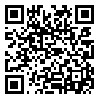BibTeX | RIS | EndNote | Medlars | ProCite | Reference Manager | RefWorks
Send citation to:
URL: http://jpt.modares.ac.ir/article-34-80986-en.html
Justice has long been one of the cornerstones of political philosophy, especially in relation to the interplay between the individual, power, and civic order. This study focuses on two pivotal historical moments in the formation of the concept of justice—Aristotle’s thought within the classical Greek tradition and Rousseau’s theory at the heart of the Enlightenment project. Through a comparative analysis, it seeks to examine the ontological, anthropological, and teleological foundations of justice in the works of these two thinkers. The central question is how justice, for Aristotle and Rousseau, is defined in relation to key concepts such as virtue, equality, citizenship, and the common good. It also asks whether, despite the philosophical and political differences in their respective contexts, a conceptual dialogue can be established between them regarding distributive justice. The findings suggest that despite fundamental differences, both thinkers view justice not merely as a distributive mechanism, but as a moral and political foundation of collective order—an order in which the realization of citizenship and the common good is inconceivable without justice.
Received: 2025/05/20 | Accepted: 2025/06/12 | Published: 2025/05/31
| Rights and permissions | |
 |
This work is licensed under a Creative Commons Attribution-NonCommercial 4.0 International License. |





